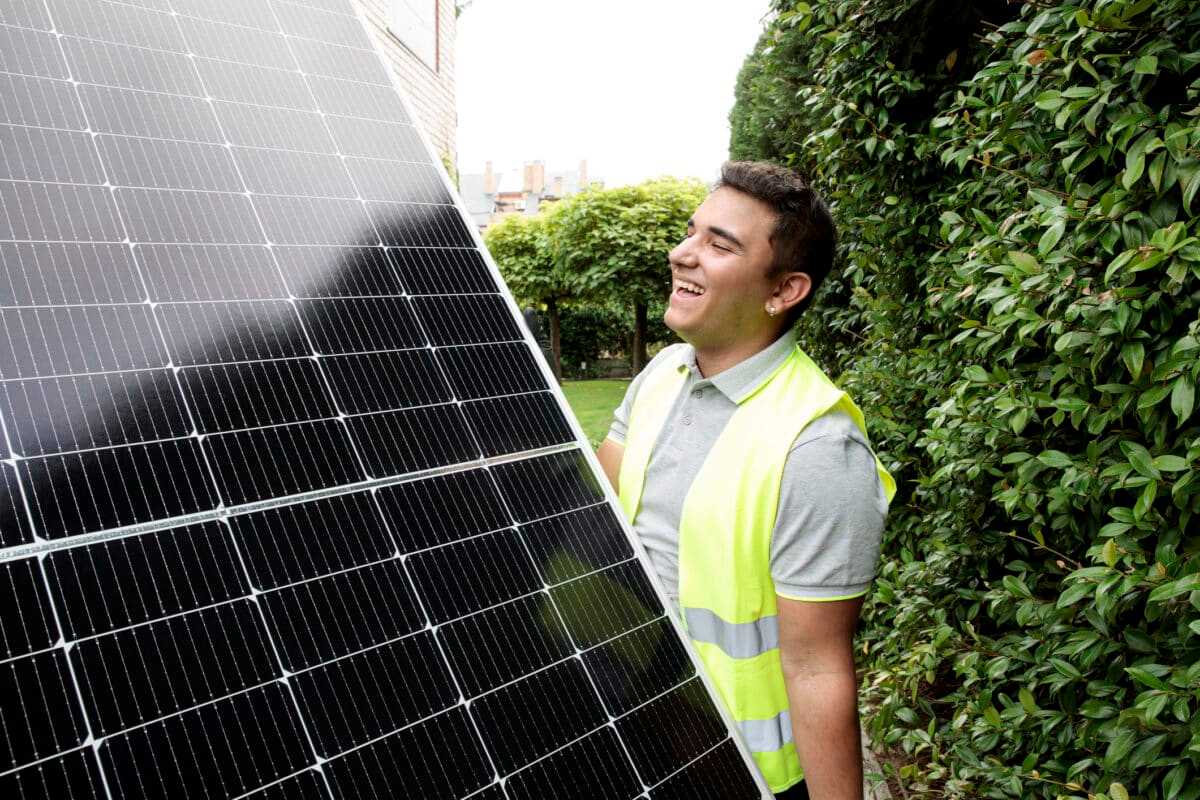4 Reasons a Home Solar Installation is Worth Considering
We are indeed living in what could be called the “age of solar”. Solar energy is rapidly becoming a dominant renewable energy source in the United States, and the popularity of solar installations is at an all-time high.
More homeowners are recognizing the benefits of harnessing solar power for their energy needs. Additionally, many states are introducing incentives, making the transition to solar energy more feasible and appealing for residents.
If you’re considering going solar, you might have questions about the practicality and value of such an investment. And as a way to answer those questions, here are the 4 main reasons why you might consider installing solar panels at your house:
It’s a Free and Reliable Energy Source
For first-time solar customers, one of the primary concerns is often the reliability of solar energy. Solar power, in reality, offers a steady and consistent energy source that can effectively complement your utility-provided energy.
Once installed, solar panels require minimal maintenance and promise to deliver high performance for many years.
The key to maximizing the benefits of solar energy lies in professional installation. Ensuring that your solar panels are installed by a licensed and experienced professional is crucial. This not only guarantees the system’s efficiency and safety but also ensures that it’s optimized for your specific energy needs and property characteristics.

You Get Access to a Wide Variety of Incentives
The financial incentives for installing solar panels in your home are among the most compelling reasons to go solar. The federal government supports this shift towards renewable energy by offering a substantial 30 percent income tax rebate for solar installations.
Additionally, for residents of Arizona, installing solar panels qualifies for a $1,000 state tax rebate, further enhancing the affordability of solar energy.
For example, consider the cost of a solar installation in Arizona at $12,500. After applying the 30 percent federal rebate and the $1,000 state tax rebate, the actual cost of the installation drops significantly to $7,750.
This reduction makes solar energy not only an environmentally sound choice but also a financially smart one, offering considerable savings on the initial investment.
Such incentives are a major factor in making solar power an increasingly attractive option for homeowners looking to reduce their energy costs and environmental footprint.
It Massively Reduces Your Environmental Impact
A solar installation can bring multiple advantages to your home, one of the most impactful being its positive effect on the environment. Using solar power at home significantly reduces your environmental impact for the following reasons:
- Installing solar panels can enhance the value of your property, making it more attractive in the real estate market.
- With a roof installation, solar panels can also serve as an additional layer of protection for your roof, potentially extending its lifespan.
- Solar energy is a clean energy source that’s free from the burning of fossil fuels. This means that unlike traditional energy sources, it doesn’t produce harmful emissions.
- By using solar energy, you significantly lower your home’s carbon footprint, contributing to a reduction in overall greenhouse gas emissions.
Investing in a solar installation is a solid step towards creating a more eco-friendly household. It allows you to harness renewable energy, reducing reliance on non-renewable energy sources and making a positive impact on the environment.
If sustainability and environmental conservation are important to you, solar power is an excellent avenue to explore.
It Helps You Save a Lot on Utility Bills
Lastly, switching to solar energy entitles you to significant savings on monthly electricity bills. Since solar installations provide additional energy that works alongside traditional energy sources, they can reduce overall energy costs.
That said, the amount of savings from solar power varies depending on several factors such as:
- Geographical Location – The amount of sunlight your area receives plays a crucial role in determining solar efficiency. More sunlight means more solar energy generation.
- Household Size and Energy Consumption – The size of your household and your typical energy usage will influence how much solar energy you can utilize and save.
- Size and Efficiency of Solar Installation – The capacity and efficiency of your solar panel system also determine the amount of energy produced and the potential savings.
For example, in Arizona, where sunlight is abundant, homeowners who invest in solar installations can expect significant savings. Over a 20-year period, an Arizona homeowner might save approximately $16,866, according to one estimate.
This figure illustrates the long-term financial benefits of solar energy, making it an appealing option for those looking to reduce their energy costs and invest in sustainable living.

Leave a Reply